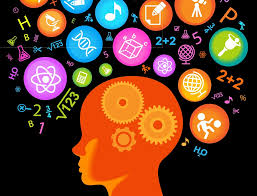Never too late.
One day I asked my daughter what she wanted to be when she grew up. “An ocean wonderer” she said, casually. “Which kind?” I asked, thinking I would confuse her. “Both” she answered, without hesitation, “wonder and wander.”
Now it was my turn to be surprised and I never forgot it. Just when you think you’ve got kids figured out, they amaze you and teach you something important instead of the other way around.
For years I had followed the ongoing debate of when we, as a species, became cognitive, yet it never occurred to me to think about kids. As far as our species goes, the debate still rages on, with some saying that with the use of fire and the cooking of meat our brains became larger and that rapidly led to cognition. Others say cognition evolved slowly, step by step, with what looks like a flat line over millions of years. Still, I never stopped to ask myself when a kid becomes cognitive. Obviously, some do sooner than others and certainly girls before boys, at least in my limited experience.
Then there’s another step: metacognition. In other words, thinking about thinking, knowing about knowing or becoming aware of one’s awareness. I never knew when it happened to me, if ever, but thinking about the answer she gave me made me realize that already at the age of seven, she was thinking: the “wander” part. And thinking about thinking: the “wonder” part.
At the time, I even thought to write an article arguing that cognition, as a species, probably happened early on in our development, based on the experience with my kids, but I admit that was a stretch: probably just a dad being proud of his daughter—not what one would call scientific proof.
Still, it serves to underscore that many of us tend to underestimate kids and their abilities. Perhaps an overreaction, but if I had to do it over again, I would probably sound more like William F. Buckley with my kids, from the beginning. At any rate, a lot less ga-ga, goo-goo.
Of course, you get to be a good parent when you are no longer needed, and why not: practice makes you better, it’s only natural. Still, in thinking about this it came to mind that the difference between us, not to mention with the great apes, is that we can solve difficult problems. The way to solve problems is to think about them, to reason, and if stuck, to know how to transition from I can’t do it, to how can I do it? That’s when thinking about your own thinking comes into play. Those who can transition easily from I can’t to how can I? tend to solve problems better, and as a rule, get along better in life, love, work, etc., in other words, they become more successful.
And it’s not only kids that need to learn these skills early on. We adults should learn also: it’s never too late, and if we already have them, by all means, polish them.
Link to pages of Denton Record Chronicle:

